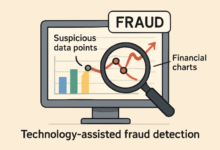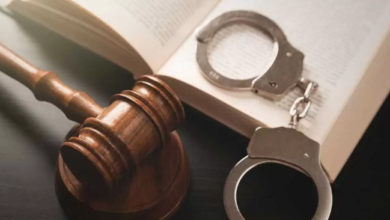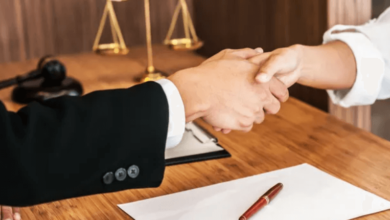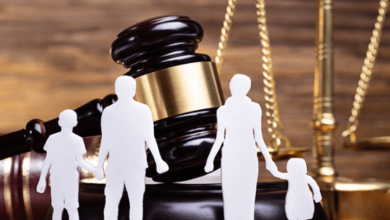Personal Injury Law and Its Intersection with Premises Liability

When individuals suffer injuries due to unsafe conditions on someone else’s property, both personal injury law and premises liability come into play. These two areas of law often overlap, ensuring that victims receive compensation when property owners fail to maintain safe environments. Understanding legal rights is crucial, especially for those who experience premises-related injuries. Consulting experienced lawyers Scranton PA can help injured individuals determine their best course of action and seek the compensation they deserve under the law.
Slip and Fall Accidents in Businesses or Homes
Slip and fall accidents are very common and can occur in various settings, from grocery stores and restaurants to private residences.
1. Wet or Slippery Floors
Businesses must place warning signs when mopping floors or after spills, as failing to do so can lead to serious injuries like fractures or concussions. Homeowners should ensure driveways and walkways are free from ice, standing water, or other slip hazards that can be particularly dangerous in colder months.
2. Uneven Surfaces
Cracked sidewalks, broken stairs, and torn carpets create tripping hazards that may result in serious injuries, including sprains, broken bones, and head trauma. Regular maintenance and prompt repairs can help prevent these accidents from occurring.
3. Poor Lighting
Dimly lit stairwells and parking lots increase the risk of falls due to limited visibility, making it difficult for individuals to identify obstacles in their path. Property owners should ensure all areas are well-lit, replacing burnt-out bulbs and installing additional lighting where needed.
4. Lack of Handrails
Staircases without secure handrails pose a risk, particularly for older adults and individuals with mobility issues who may struggle with balance. Ensuring stairways have sturdy, properly installed handrails can significantly reduce fall risks and potential liability.
See also: How Solar Street Lighting Improves Public Safety and Reduces Energy Costs
Negligent Security Leading to Assaults or Injuries
Property owners, including business owners and landlords, are responsible for providing adequate security to protect visitors and tenants.
1. Apartment Complexes
Landlords must ensure that common areas are well-lit and secure, with functional locks on doors and windows, to prevent unauthorized entry and potential crimes like burglaries or assaults. Failing to address security concerns can result in legal liability if a tenant or visitor is harmed.
2. Hotels and Motels
Inadequate surveillance, lack of security personnel, and unsecured entrances can put guests at risk of theft, physical attacks, or other crimes. Owners should invest in security cameras, proper lighting, and controlled access to protect visitors.
3. Shopping Centers and Parking Lots
Insufficient lighting, broken security cameras, and a lack of security patrols can create dangerous conditions for visitors, making them easy targets for muggings, car break-ins, or other violent crimes. Business owners should prioritize well-maintained security systems and staff to deter criminal activity.
4. Bars and Nightclubs
Establishments that serve alcohol must take precautions to prevent altercations and protect patrons from harm, such as employing trained security personnel and monitoring alcohol consumption. Failing to intervene in escalating situations can lead to liability if patrons suffer injuries due to fights or attacks.
Dog Bite Liability and Homeowner Insurance Claims
Dog attacks can lead to severe physical and emotional trauma, and premises liability often plays a role in holding owners accountable.
1. Strict Liability Laws
Some states hold dog owners automatically responsible for injuries caused by their pets, regardless of prior behavior, meaning the victim does not need to prove negligence. These laws ensure swift compensation for medical expenses, lost wages, and other damages.
2. One-Bite Rule
In jurisdictions with this rule, owners may only be liable if they were aware of their dog’s tendency to bite, which often requires evidence of a past incident. This can make proving liability more challenging for victims without documentation of prior aggressive behavior.
3. Failure to Secure the Dog
If a homeowner fails to keep their dog restrained or fenced, they can be held liable for any resulting injuries, especially if the dog was roaming freely or escaped due to owner negligence. Proper enclosures, warning signs, and responsible pet ownership can prevent such incidents.
4. Injuries to Invited Guests Vs. Trespassers
Property owners generally owe a duty of care to lawful visitors but may not be responsible for injuries sustained by trespassers, depending on state laws. However, exceptions exist if a dangerous dog was intentionally left in an accessible area without proper warnings.
Responsibilities of Landlords in Tenant Injury Cases
Landlords have a legal obligation to maintain rental properties in a safe and habitable condition.
1. Defective Staircases and Railings
Landlords must ensure that stairwells are structurally sound and properly maintained, as unstable or broken railings can result in serious falls and injuries. Routine inspections and timely repairs help prevent accidents. In case injuries happen due to this, a Wilkes Barre personal injury lawyer can assist tenants who have suffered harm due to such.
2. Faulty Electrical Wiring
Exposed wiring, outdated electrical systems, and a lack of smoke detectors can lead to severe injuries or fatalities, particularly in fire-related incidents. Tenants have the right to demand prompt repairs to eliminate these risks.
3. Mold and Toxic Substances
Failure to address mold growth, asbestos, or lead paint hazards can result in long-term health complications, including respiratory problems and neurological damage. Landlords should follow proper remediation protocols to ensure tenant safety.
4. Broken Locks and Security Failures
A landlord’s failure to provide secure locks on doors and windows may contribute to break-ins and tenant injuries, exposing them to physical harm or theft. Proper security measures, such as deadbolts and security cameras, are essential for tenant protection.
Conclusion
Premises liability and personal injury law are closely connected, holding property owners accountable for preventable injuries. Whether it’s a slip-and-fall accident, an assault due to negligent security, a dog attack, or a hazardous rental property, victims have legal rights to pursue compensation. Seeking assistance from a knowledgeable personal injury lawyer Allentown can make all the difference in achieving a successful claim. Legal professionals help injured individuals navigate complex legal processes and fight for the justice they deserve.






